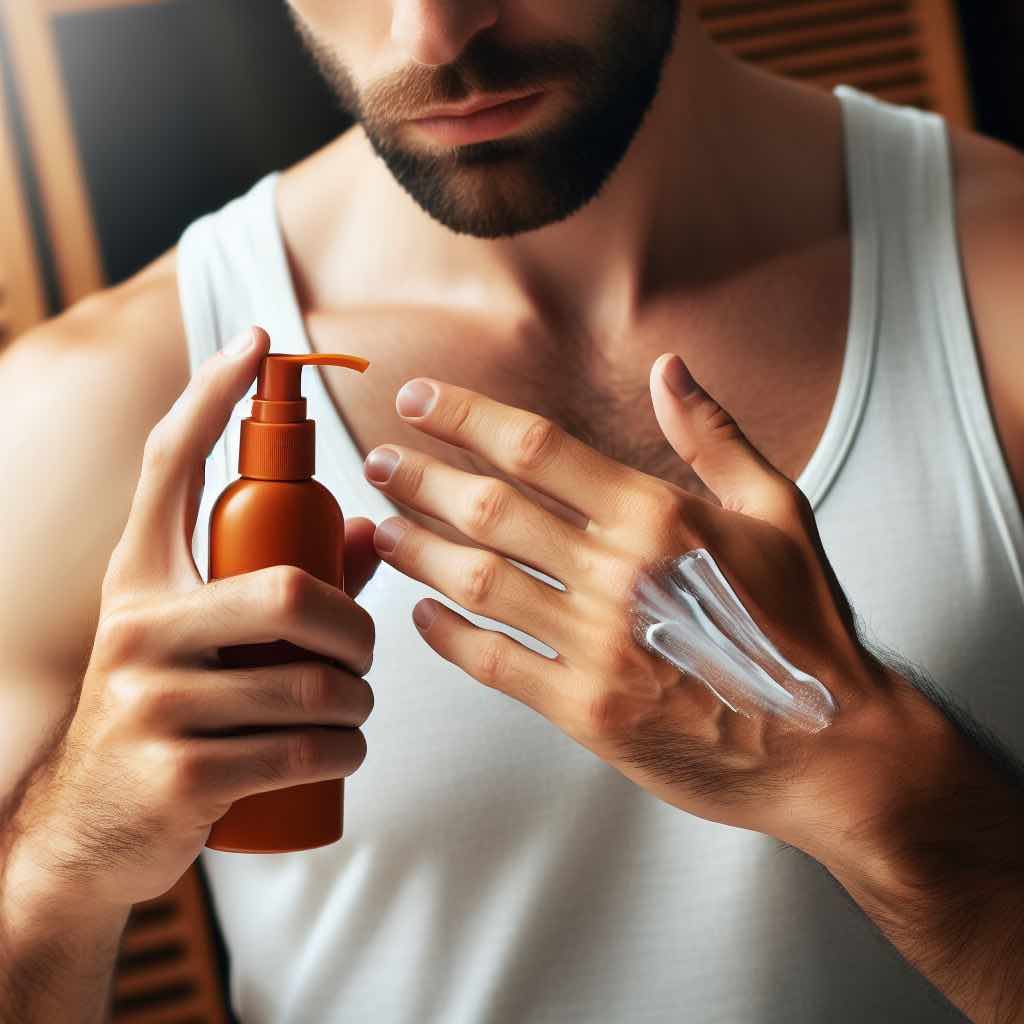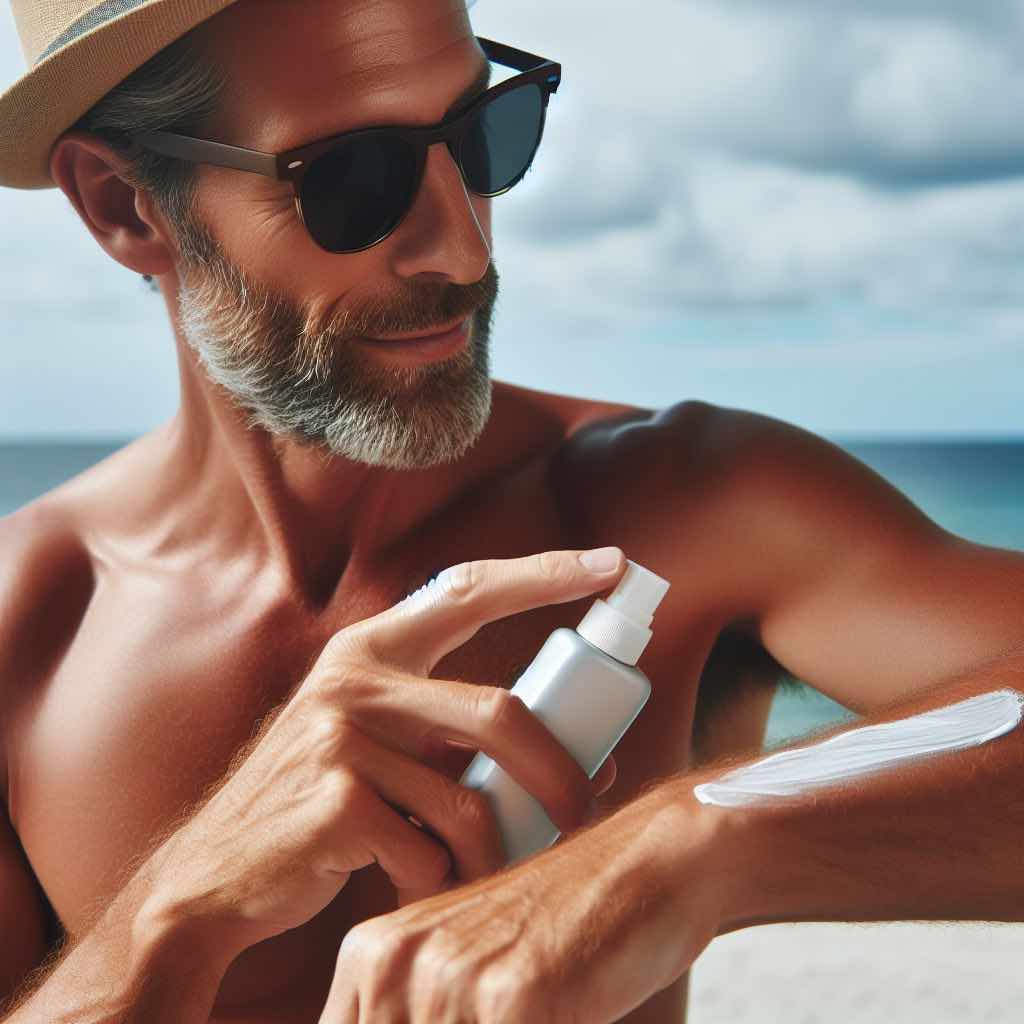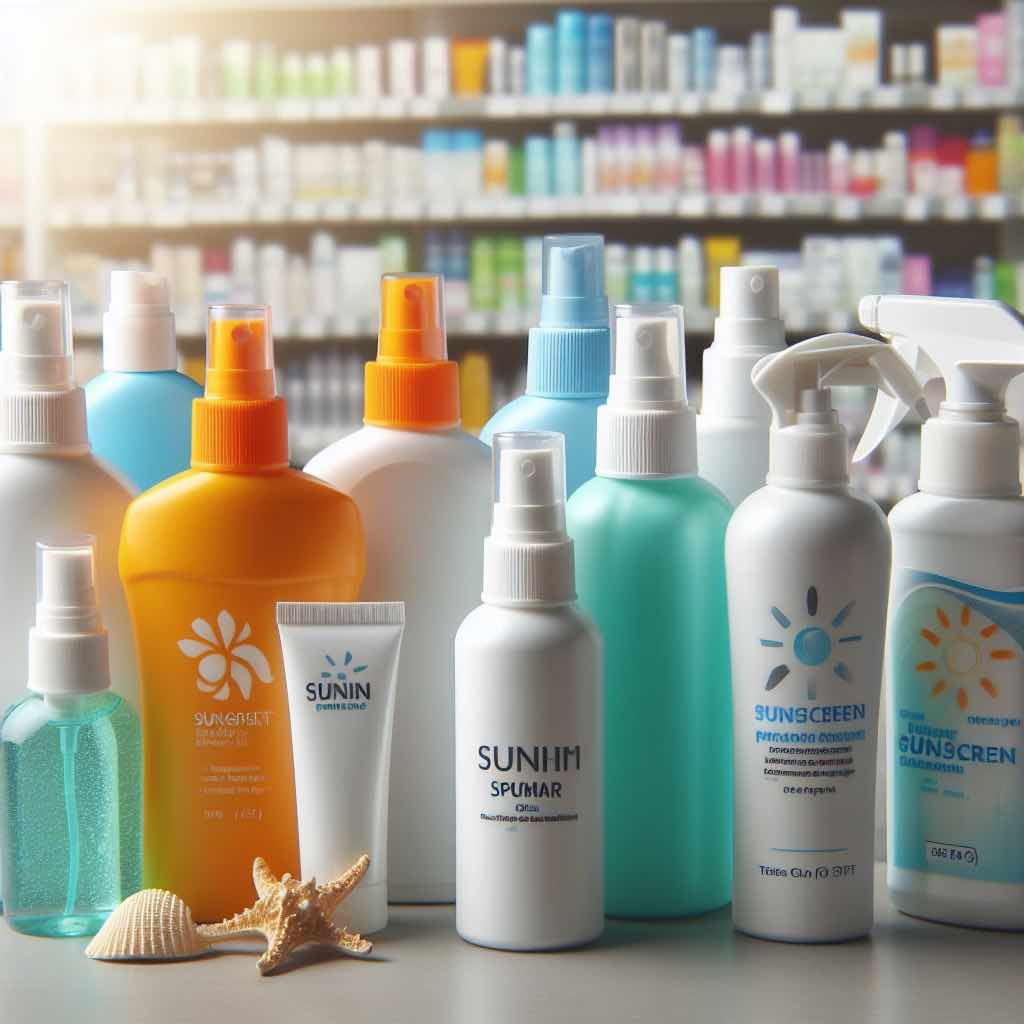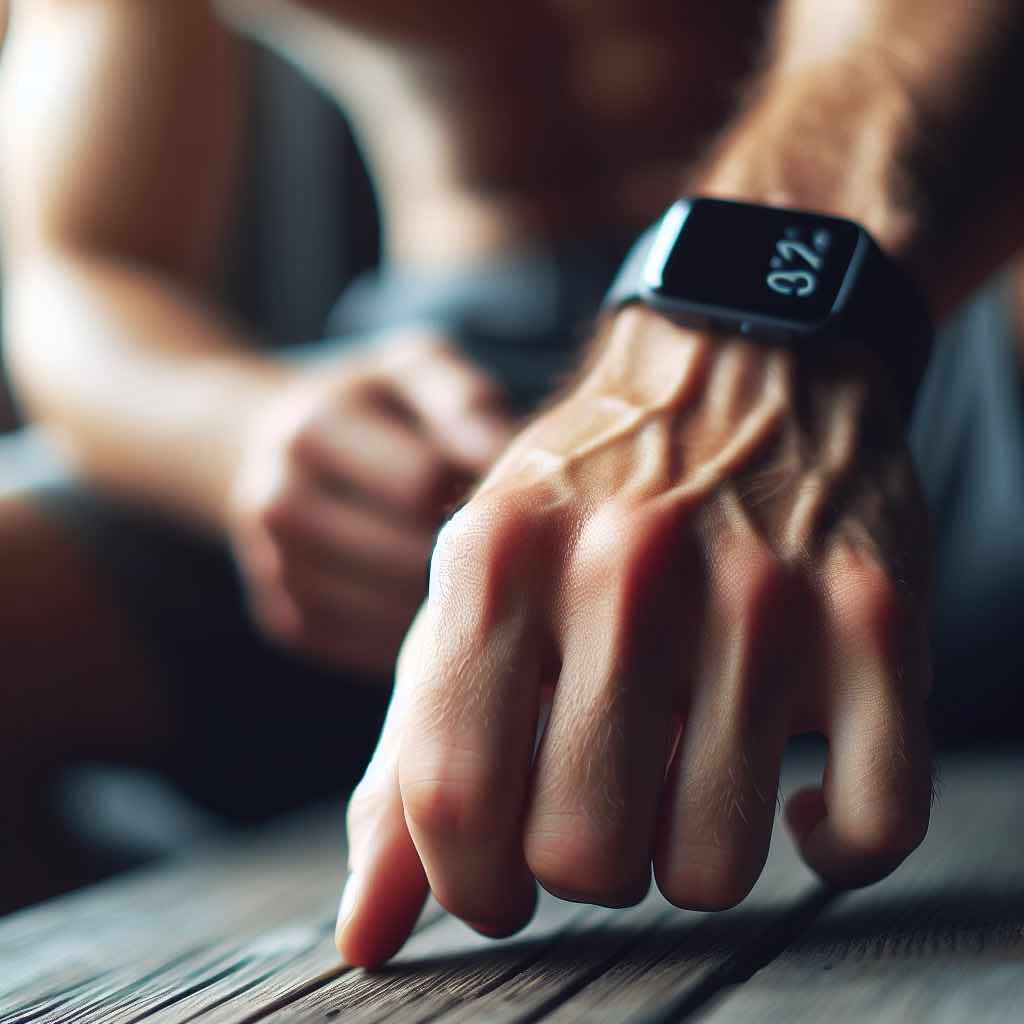Have you heard that men spend more time in the sun than women? Did you know that men’s left sides are more likely to get cancer because of long hours spent driving?
So, should you wear sunscreen every day? The answer is a resounding yes.
Sunscreen shields your body against the harmful sun’s UV rays, is key in skin cancer prevention, and helpful with premature ageing.
Its use is not only beneficial on sunny days. You must apply it even on cloudy or winter days, as the merciless ultraviolet spears pass through the clouds despite the temperature.
This article is a comprehensive guide to sunscreen for men, emphasising its role in UV protection and skin cancer prevention.
Today’s Focus of Attention is reader-supported. We sometimes include products we think are useful for our readers. If you buy through links on this page, we may earn a small commission.
Understanding UV Protection
As a man, you might expose yourself to the scorching sunlight while at work, and for that, you must protect your skin from the effects of such radiation.
Prevention is the best medicine. So, wearing a sunshine filter every day is essential.
Research has shown that only 18% of men, against 42% of women, apply sunscreen to their faces and arms, despite the alarming statistics revealing that men over 50 are more than twice as likely as women to develop and die from skin cancer.
“Skin cancer is the cancer men are most likely to face. Over 8,600 American men will die this year from melanoma.” Marie Veronique – chemist and skincare expert.
Moreover, men are three times more reluctant to consult with a dermatologist when they have a medical symptom.
Addressing the gender gap in sun defence use, Dr Allison Darland notes that several studies show sunscreen is less common amongst men compared to women, largely due to sociocultural factors.
The American Academy of Dermatology (AAD) recommends the everyday application of a water-resistant SPF 30+ sunscreen with a broad spectrum to protect against UVA and UVB piercing rays.
Regular usage of a protective cream or lotion reduces the risk of developing squamous cell carcinoma (SCC) by 40% and lowers the melanoma threat by 50%.
Here are reasons that support this daily practice:
Sunscreen is Crucial to Skin Cancer Prevention

Years of exposure to the sun’s UV rays are a leading cause of such a malady. Thus, wearing sunscreen with a high SPF minimises the possibility of getting this disease.
Around 20% of Americans are likely to develop skin cancer over the course of their lifetime, with 1 in 27 affected by melanoma, the most dangerous form.
Ultraviolet radiation is powerful, and just 15 minutes outdoors, still on an overcast day, is enough to cause harm. And an old study showed that this type of cancer more often occurs on the left side of men, the flank exposed to the sun while driving.
To prevent permanent damage, apply sun blocker to your face, neck, chest, ears, hands, and arms each day, besides protective clothing. An investigation in Australia revealed that regular sunscreen use lowers the frequency of melanoma by 50%.
Here’s how this armour helps you:
Blocking UV Rays
Two types of UV reach the earth’s surface: UVA and UVB, and both can cause skin cancer. Sunscreen is the guardian that blocks or absorbs them.
Preventing DNA Damage
Prolonged exposure to sunlight may alter your skin cells’ DNA, leading to mutations and cutaneous malignancies. A sun filter minimises this alteration by shielding you from this radiation.
Although wearing a sunscreen armour against UVA and UVB every day is an effective way to forestall skin cancer, it’s not a 100% guarantee.
Depending on your job or outdoor activities, seek shade when possible and wear protective clothing.

Sunscreen Prevents Premature Ageing
The constant bombardment of ultraviolet rays on your body steals your skin’s young-looking glow.
Daily use of a broad-spectrum sunscreen impedes the breakdown of collagen, crucial for elasticity and youthful appearance, while delaying early wrinkles, brown dots, and irregular pigmentation.
How about turning back the clock despite the passage of time?
Sunscreen Helps Keep an Even Skin Tone

This is favourable for those who are prone to hyperpigmentation.
Sunscreen prevents discolouration and dark spots from sun damage and, at the same time, deactivates the production of melanin, the pigment responsible for natural colouring.
While this bodyguard plays a crucial role in maintaining uniform pigmentation, follow a comprehensive skincare routine that includes cleansing, moisturising, and exfoliating.
Myths and Misconceptions
Myth 1: Men Don’t Need Sunscreen If They Don’t Burn Easily
Damage from UV rays happens even without visible signs like sunburn, leading to premature ageing and an increased risk of skin cancer.
Myth 2: Sunscreen Is Only Necessary on Sunny Days
Ultraviolet radiation penetrates clouds and glass, meaning sunscreen is imperative every day, regardless of the weather or if you’re spending time indoors near windows.
Myth 3: Darker Skins Don’t Need Sun Protection
While darker tones have more melanin, which safeguards against UV energy, it’s not enough to prevent damage. Everybody needs defence.
Myth 4: Using Sunscreen Leads to Vitamin D Deficiency
While such a product reduces vitamin D synthesis in the skin, it won’t block it altogether. If so, this nutrient can be obtained through diet or supplements.
Myth 5: Waterproof Sunscreen Doesn’t Need Reapplication
Sunscreens labelled as water-resistant still involve a fresh layer, in particular after swimming or sweating.
Myth 6: Sunscreen Causes More Harm Than Good Due to Chemicals
The benefits of sunscreen in protecting against skin cancer and premature ageing far outweigh the potential risks of absorption of its ingredients. The FDA and other health organisations deem sunscreens safe for use.
How Often Should You Apply Sunscreen?

Even on cloudy and winter days, over 80% of the sun’s harmful UV rays pass through the clouds; thus, wear sunblock if you plan to be outside for more than 20 minutes.
Check out these tips:
- Apply sunscreen for at least half an hour before going out.
- Reapply every two hours if exposed to sunlight.
- As for swimming, sweating too much, or towelling off, have a new layer forthwith.
- No second application is needed if you work indoors and sit away from windows.
When to Apply Sunscreen

First, choose the right product by looking for a broad-spectrum SPF 30+ or higher to protect yourself against both UVA and UVB rays. To get maximum protection, consider these tips:
Before Exposure
Apply sunscreen 30 minutes before exposing to sunlight, allowing your skin to absorb it. If you’re using a physical one, it works right away.
Wear Enough
For an adult, a decent amount is 35 millilitres (two tablespoons).
Cover All Exposed Areas
Sunscreen must be present on your face, ears, hands, neck, and arms. But if your activity involves exposing other parts of your body, include the back and legs.
Reapply Like Clockwork
If you’re swimming, sweating too much, or towelling off, refresh the protective lotion straightaway. For normal activities, renew it at least every two hours.
Types of Sunscreen

You’ll find a variety of sunscreens, each with its own unique properties and benefits.
Here’s a list of the most common:
Physical: They create a tangible barrier, reflecting the sun’s radiation.
Chemical: After entering the body through the skin, they absorb and transform UV rays into heat before releasing them.
Lotion: Easy to apply, good for spreadability, and a popular option for applying to large areas.
Aerosol Spray: They are sprayed from a can.
Mist: Similar to aerosol sprays, they often come in a pump bottle.
Balm Stick: As a solid bar, this product is rubbed onto the skin.
Moisturiser: With SPF, it offers hydration and defence.
Makeup: Foundations and powders containing sun protection factors.
Gel: This is the preferred choice for oily or acne-prone skin.
Regardless of the type you choose, remember to look for an SPF 30+ broad-spectrum sunscreen that protects against both UVA and UVB rays.
Physical vs Chemical Sunscreens
Both protect from harmful UV rays, but they do so in different ways.
Physical Sunscreen
Also known as minerals, these work by creating a solid barrier, serving as a shield against the sun’s waves.
They reflect radiation with common active ingredients, such as zinc oxide and titanium oxide.
Although less irritating and a better fit for sensitive skin, they’re difficult to spread and leave a noticeable white cast.
Chemical Sunscreen
After being absorbed by the skin, these filters capture and convert the UV rays into heat and release them from the body.
The usual ingredients in chemical sunscreens include avobenzone, octinoxate, and oxybenzone.
Presented as a suitable alternative for swimming or sweating, some studies have suggested that certain chemical creams can affect hormone levels.
Side Effects of Sunscreen
On the whole, it’s safe for most people, but as with any product, it comes with unwanted results.
- Skin reactions include redness, itching, or stinging.
- Acne could worsen.
- Hypersensitivity to specific ingredients.
- Tightening of the skin because of a chemical component.
- Pus-filled blisters appear if the allergy is severe.
- Certain substances in the lotion might affect hormone levels in the body.
If you experience any adverse reaction to a sunscreen, stop using it and consult your doctor to find a suitable choice for your dermal composition.

Know Your Skin Type
It is paramount to be familiar with your external surface’s characteristics to go for the right protection.
Men’s skin types fit into these five categories:
Normal Skin
It’s not oily, sensitive, or dry, and produces a healthy amount of oil.
Dry Skin
This one suffers from problems associated with insufficient moisture. A man with dry skin may experience flaking, itching, and other forms of roughness due to dead, dry cells accumulating on his face and other areas.
Oily Skin
With excess oil, greasy skin leads to a shiny appearance and contributes to the development of acne.
Sensitive Skin
Particular products or environmental factors cause redness, itching, or other signs of irritation to those with this nature.
Combination Skin
Dry in some parts and oily in others.
How to Identify Your Skin Type
Follow these simple steps:
1- Wash your face.
2- Wait for an hour, giving it time to return to its natural state.
3- Pat your T-zone (forehead and nose) with a tissue. If oil shows up, you either have oily or combination skin.
4- With dry skin, your face will feel tight after cleansing, whereas oily skin will be perceived as cleaner right after washing. On the other hand, with combination skin, the T-zone appears clean, but your cheeks, tight. Sensitive skin reacts to specific cleansers and may cause itchiness or a rash.
5- If you notice red, flaky patches all over your face, you most likely have dry or sensitive skin. But if your face is shiny far and wide, you have greasy skin. A mixture of both means combination skin.
6- Pay attention to your pore size. Normal skin shows visible but not large pores. Take a couple of steps back from the mirror. If you still see your pores is because of oily skin. If they are not noticeable at all, it’s dry skin.
Not sure of your skin type? Consult with your dermatologist to determine the sun antidote to apply.
Conclusion
The daily use of sunscreen for men is an essential step in UV protection and effective skin cancer prevention.
The recommendation is to wear a mineral type with a minimum of SPF 15 for everyday application or an SPF 30 or higher for prolonged activities.
Don’t wait until it’s too late. Skin damage builds up over time, so today is the best day to start.
Challenge the stereotype that sunscreen is makeup and a woman’s thing. Be the change, make it a non-negotiable daily routine, and show that real men take their health seriously.
We want to know about your experience. Your story could inspire others to do something towards a better life.


